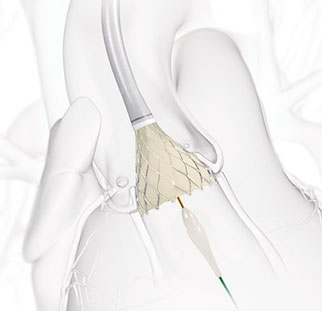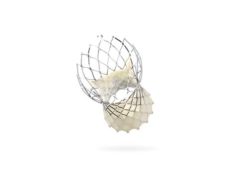
The US FDA has approved an investigational device exemption (IDE) to initiate a single-arm study to evaluate the CoreValve Evolut transcatheter aortic valve implantation (TAVI) system (Medtronic) in patients with bicuspid aortic valves who are at low risk of surgical mortality. Medtronic separately received FDA approval for revised commercial labelling for the CoreValve Evolut TAVI system that removed a precaution for the treatment of bicuspid severe aortic stenosis patients deemed at intermediate or greater risk for surgical aortic valve replacement.
While the revised labelling approval pertains to patients deemed at intermediate risk or greater for surgical aortic valve replacement, Medtronic is studying bicuspid patients within a separate single-arm study of the Low Risk TAVR trial. In the USA, use for treatment with bicuspid aortic valves in patients who are at low risk of surgical mortality is investigational use only.
Jeffrey J Popma (Beth Israel Deaconess Medical Center, Boston, USA), says: “Real-world data suggests that TAVI with the self-expanding Evolut can be a suitable treatment option for many patients with bicuspid aortic valve disease. In fact, data from the TVT Registry has shown near-parity in certain outcomes between bicuspid and tricuspid patients using the Evolut self-expanding platform.”
Pieter Kappetein, vice president, medical affairs for Structural Heart business, which is part of the Cardiac and Vascular Group at Medtronic, comments: “As a leader in heart valve solutions, this label revision enables us to provide proactive training and education on procedural TAVI sizing and placement in this patient population. The bicuspid study, in addition to new studies on TAVR efficiencies and leaflet mobility, will provide important insights as we look to further refine TAVR therapy.”













